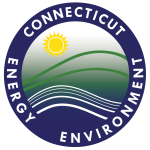Resource Management Contracting

What Is Resource Management Contracting?
Resource management (RM) contracting is a partnership between the contracting organization and service provider where both entities benefit from performance based financial incentives to maximizing recycling and waste reduction and save businesses money. “Solid waste” collection contracting is a thing of the past. Municipalities and businesses are now thinking about how better to manage all materials that they generate as valuable resources, not just what is considered waste, to achieve cost savings, recycling and sustainability goals, and embrace the zero waste philosophy. Resource management contracts work in municipalities, businesses, school districts, and other organizations that procure waste and recycling collection services.
A successful recycling collection program provides an economic incentive to recycle, offers a consistent educational and promotional message to residents and employees, and is easy for people to participate in and understand. RM contracting can help you build a successful program by incorporating key concepts into your collection contracts.
Implementing Resource Management Contracting
The best time to implement RM contracting for your municipality, business or other organization is before your service contract is up for renewal or when making other changes to collection services. As the contracting entity, you should identify current waste and recycling activities and start thinking about other materials and services to include in the contract.
It is essential to have a good understanding CT’s recycling laws and regulations when contracting for solid waste and recycling services, particularly the responsibilities of different partners like municipalities, collectors, businesses and residents. Often, state recycling requirements may be added to contracts to help strengthen and clarify responsibilities of the contracting entity and service provider.
The U.S. Environmental Protection Agency outlines the standard practices for resource management contracting, including designing a resource management program, developing specifications and request for proposals, and negotiating contracts. Through structuring the contract, you can:
- Establish baseline service levels and performance goals;
- Encourage input from contractors;
- Establish transparent pricing for services; and
- Provide for incentives for increased resource efficiency and reduced waste.
|
Incorporate CT Solid Waste/Recycling Laws and Regulations Into Contracts
|
|
Many of CT’s recycling laws and regulations provide good examples of contract language to ensure collection of clean streams of materials and recycling compliance. Language in resource management contracts can include:
|
Resource Management Contracting Resources
Resource Management Standard practices, Innovative Solid Waste Contracting Methods Manual, and other resources (US EPA)
Resource Management Contracting Portal Sample contracts, case studies and pilot projects (MA DEP)
Guidebook for Implementing Recycling and Pay As You Throw (PAYT) Ordinances, Legislation, or Contracting (Skumatz Economic Research Associates, Inc.)
Pay-As-You-Throw Resources and Information Sample ordinances, contract language, and regulations for recycling and trash collection (Econservation Institute)
Optimizing Services: Municipal Collection Contracting (DSM Environmental Services)
Collecting Recycling Article on collection best practices (Resource Recycling)
Hauler Terms and Waste Conversion Factors (Northeast Recycling Council)
Suggested Tips and Language for Recycling Hauling Services Bid Specifications (Northeast Recycling Council)
For more information, contact Jennifer Weymouth at 860-424-3508.
Content Last Updated January 2020

